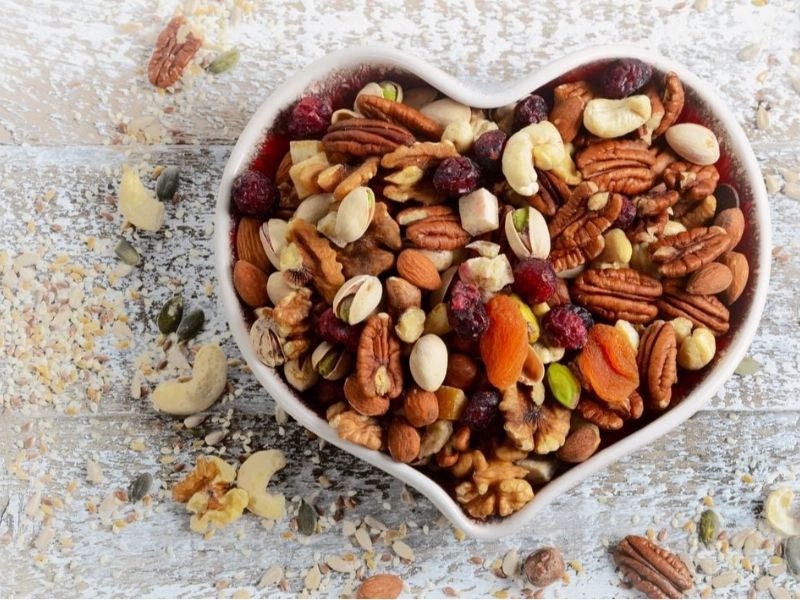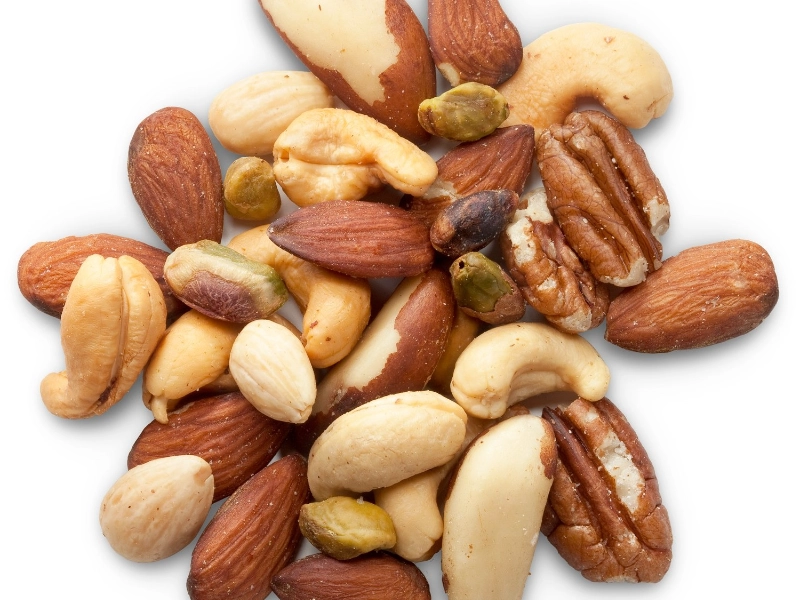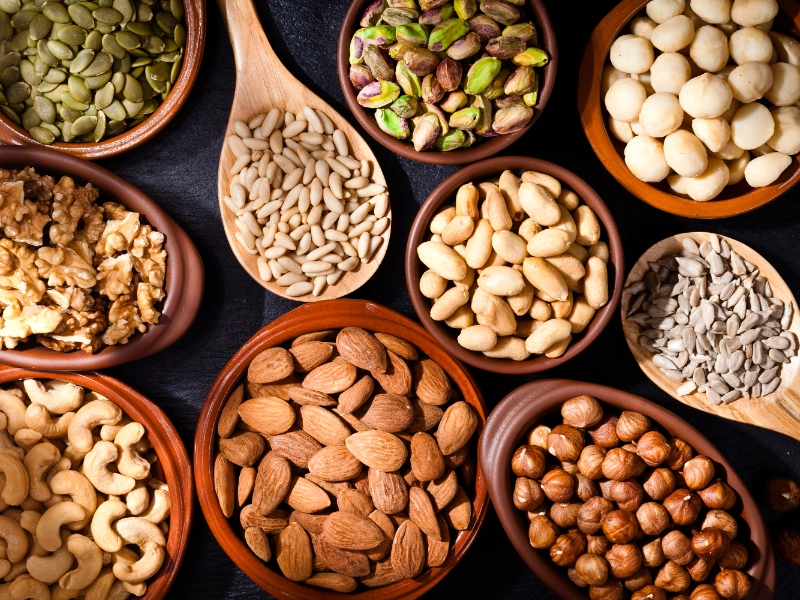Nuts For Overall Wellness: Small Changes For Big Health Impact
Comprehensive studies over the past two decades confirm nut intake for general health. This includes a relationship to lower cholesterol, better insulin sensitivity and decreased heart disease risk. Among the better plant-based sources of omega-3 fatty acids are walnuts. Important for eye health, lutein and zeaxanthin are also present at highest levels in them.
1. Eat More Nuts

2. Add Nuts to Your Favorite Snacks
 Your supermarket will carry a range of nuts, from crunchy almonds to silky peanut butter and all points in between. Though all nuts are nutrient-dense, some kinds provide particular health advantages. For example, Brazil nuts are a wonderful source of selenium; almonds are heavy in heart-healthy monounsaturated fats.
Nut intake has been related, in both men and women, to a reduced incidence of diabetes, gallstones, and coronary heart disease by epidemiologic research. Healthy unsaturated fats, protein, vitamins (A and E), minerals (iron, potassium, zinc and copper), and phytosterols and phenolic compounds with antioxidant action abound in nuts. They also offer a vegetarian supply of omega-3 fatty acids.
Your supermarket will carry a range of nuts, from crunchy almonds to silky peanut butter and all points in between. Though all nuts are nutrient-dense, some kinds provide particular health advantages. For example, Brazil nuts are a wonderful source of selenium; almonds are heavy in heart-healthy monounsaturated fats.
Nut intake has been related, in both men and women, to a reduced incidence of diabetes, gallstones, and coronary heart disease by epidemiologic research. Healthy unsaturated fats, protein, vitamins (A and E), minerals (iron, potassium, zinc and copper), and phytosterols and phenolic compounds with antioxidant action abound in nuts. They also offer a vegetarian supply of omega-3 fatty acids.
3. Add Nuts to Your Drinks
 Protein, good unsaturated fats, vitamin E, B vitamins and minerals including potassium, calcium, magnesium, iron, zinc and selenium abound in nuts. Additionally low glycemic index, they might assist increase insulin sensitivity and postprandial glucose levels based on the PREDIMED research.
Select raw or dry roasted nuts; steer clear of salted ones, which have more sodium. There are also bars and nut milks, but be cautious of the added sweets. Making your own nut milk with a combination of almonds and oats—which offers more protein than other kinds—is the best choice. Berries could also be added for more taste and sweetness. Nut eating has been associated by epidemiologic research to lower risk of diabetes in both sexes as well as gallstones and heart disease.
Protein, good unsaturated fats, vitamin E, B vitamins and minerals including potassium, calcium, magnesium, iron, zinc and selenium abound in nuts. Additionally low glycemic index, they might assist increase insulin sensitivity and postprandial glucose levels based on the PREDIMED research.
Select raw or dry roasted nuts; steer clear of salted ones, which have more sodium. There are also bars and nut milks, but be cautious of the added sweets. Making your own nut milk with a combination of almonds and oats—which offers more protein than other kinds—is the best choice. Berries could also be added for more taste and sweetness. Nut eating has been associated by epidemiologic research to lower risk of diabetes in both sexes as well as gallstones and heart disease.
4. Add Nuts to Your Baked Goods
Among the many nutrients nuts provide include protein, dietary fibre, antioxidants, phytosterols and vitamin E. Along with potassium, magnesium, and copper they also offer monounsaturated fats and tocopherol, which are heart-healthy. Regular nut intake has been linked in epidemiologic studies to lower risk of coronary heart disease. Nut intake has been found in clinical studies to lower blood pressure, triglycerides, total and LDL cholesterol levels. Given their high calorie count, keep a serving of nuts to a modest handful—about 30g. Stow them among low-energy dense foods or nibble between meals. To include almonds, brazil nuts, hazelnuts, pistachios, walnuts or peanuts into your meals or recipes, try Nut analogues free of significant allergies and with the same nutritional value as nuts also abound from Inclusion Technologies, Atchison, Kansas.
5. Add Nuts to Your Meals
Among proteins, healthy fats, fibre, and vitamins, nuts are really good sources. Numerous studies have linked nut intake to lower risk of diabetes, gallstones, high blood cholesterol, and coronary heart disease. Still, nuts are calorie-dense and can be heavy in sodium, hence they should be eaten in moderation. Try including raw unsalted nuts—that is, ones free of additional coatings like walnuts and toasted peanuts. Pecans are high in copper and magnesium; almonds and pistachios supply vitamin E. Technically legumes but nutritionally like nuts, peanuts are rich in folate. The Australian Dietary Guidelines advise that one should regularly eat nuts. On most days of the week, aim for thirty grammes. Moreover, nuts control food intake and help to reduce hunger.








